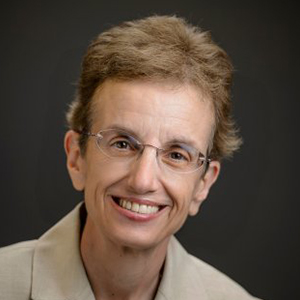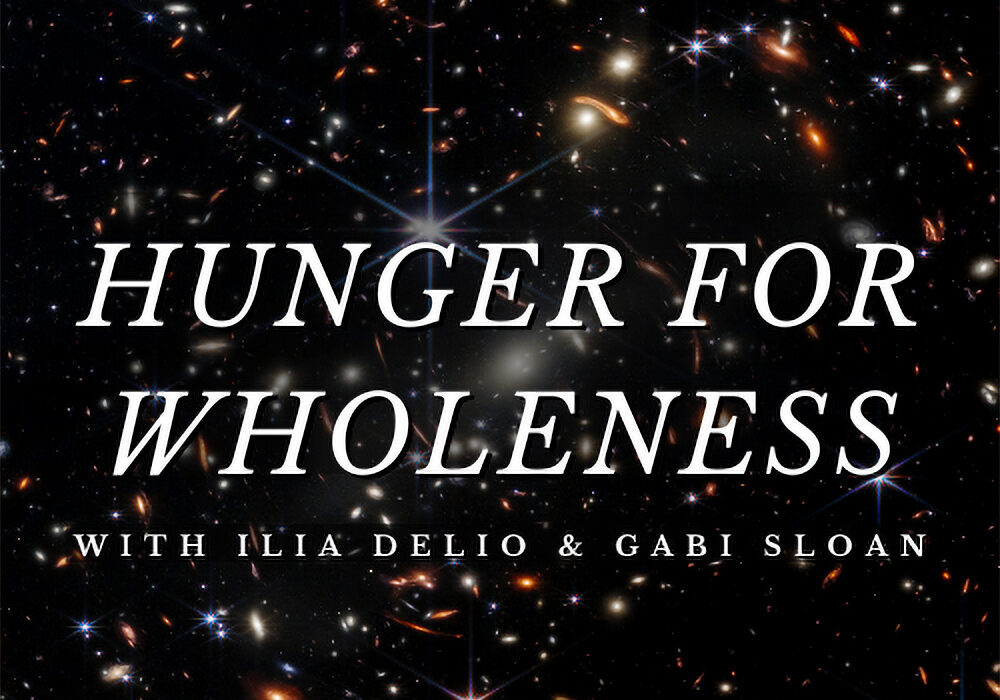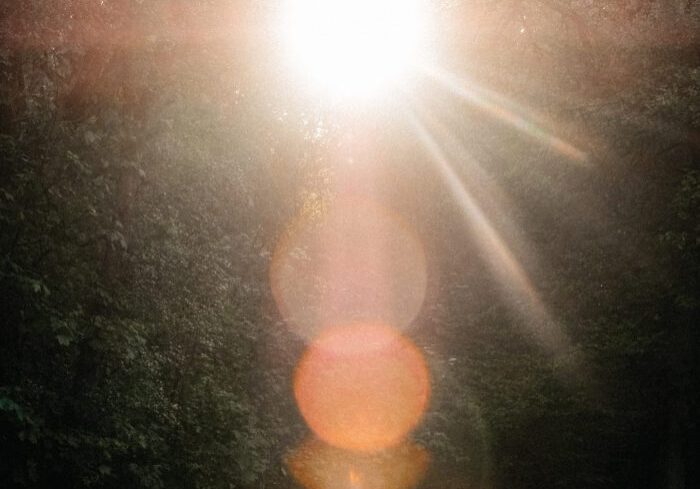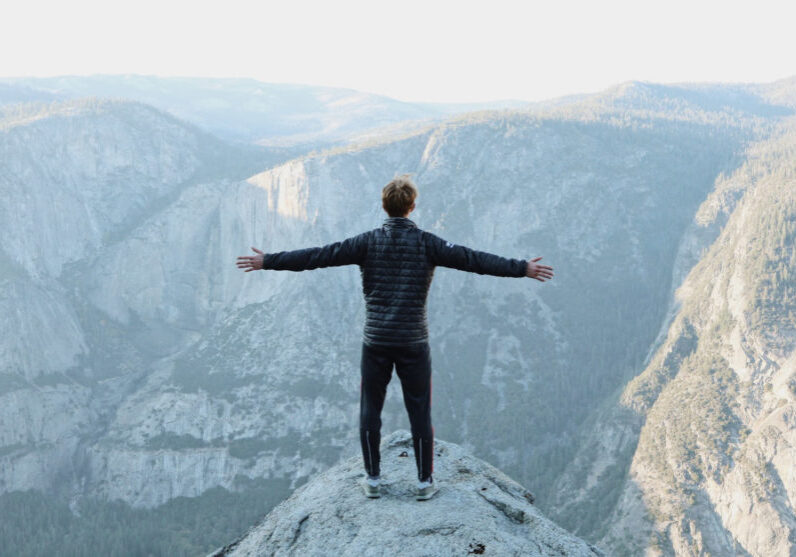The Problem of Evil
Q: N.T. Wright in his book “Surprised by Hope” claimed that Teilhard’s “myth of progress” cannot deal with evil because it can’t stop evil, it doesn’t address the moral problem of all the evil that has happened to the world to date and it underestimates the nature and power of evil itself. It seems to me that Wright sees God only as apart from what is considered evil or suffering. I was wondering if you could respond to that.
 A: Well, I think the first thing we need to clarify is that there is no “myth of progress” in Teilhard’s writings. He never uses the term nor does his vision boast of unbridled progress. This term has been unfortunately imposed on Teilhard and it has led to severely comprising his insights. In light of this misfortune, there is a lot of misunderstanding around his ideas on evolution and evil. For one, evil is not a negative essence of some sort but a privation of the good which may come about by choice (moral agency) or consequence (natural disasters).
A: Well, I think the first thing we need to clarify is that there is no “myth of progress” in Teilhard’s writings. He never uses the term nor does his vision boast of unbridled progress. This term has been unfortunately imposed on Teilhard and it has led to severely comprising his insights. In light of this misfortune, there is a lot of misunderstanding around his ideas on evolution and evil. For one, evil is not a negative essence of some sort but a privation of the good which may come about by choice (moral agency) or consequence (natural disasters).
The fifth century mystical writer Pseudo-Dionysius said that God knows evil under the form of the good, meaning that God only recognizes the good and not the absence of the good. Hence evil is a distortion or annihilation of the good. Teilhard saw evil as the incompleteness of physical evolution in so far as evolution is oriented toward a higher state of unity. This “movement” toward unity is based on the fact that we humans can study evolution and understand the process from which we emerge. Hence we have a sufficient unity of intellect, a complexified brain, that enables us to realize we are evolution on the level of self-consciousness. But we are incomplete creatures because we have not attained the fullness of unity; hence we are bounded, finite and can choose against the good.
Teilhard thought that evolution toward unity is impossible without giving rise to evil by statistical necessity. This is not a light-hearted dismissal of evil but a reality check that in a finite universe of such an enormous magnitude, disorder and failure are inevitable at every level of created being. Evil therefore is “the very expression of a state of plurality that is not yet completely organized.” Teilhard states that in our universe “evil appears necessarily and abundantly … not by accident (which would not much matter) but by the very structure of the system”; a universe in evolution is necessarily “a universe which labors, which sins, which suffers.” The existence of evil “seems to be the rigorously inevitable concomitant of creation.”
Teilhard was not a naïve thinker. In his view to say that God could “obtain a creature united to Himself without entering into combat against evil” is a contradiction. We are not God and our tendency is to choose against God because we are selfish creatures, incomplete but open to completion in the future. Everything that is not yet finished and organized must inevitably suffer in its residual lack of organization and in its possible disorganization. One does not have to be a theologian to figure this out. When we know things partially, we know them somewhat incorrectly. We make mistakes based on partial knowledge. We are constantly living with incompleteness and multiplicity, but long for completeness and unity.
In Teilhard’s view, the world seen experientially from our point of view, is an immense groping, an immense enterprise, an immense attack; its progress is made at the price of much failure and of many wounds. In a universe moving toward always greater unity, sin is a return to the multiple, a descent from a more or less unified state to a less unified state.
Sin is precisely the deliberate movement of the will away from unity; it is evil at the level of moral consciousness. “There is only one evil,” Teilhard writes, “disunion. We call it moral evil when it affects the free zones of the soul.”
So Teilhard sees that sin is inevitable in a universe (this large) in the process of unification. If there was no sin (fracture, disunion) there would no impetus to transcend our present state. Sin, for Teilhard, is the free choice of disunion, of disorder; sin is living in the exile of unrelatedness. It is the inevitable counterpart of movement toward greater unity.There is no order in the process of formation that does not imply disorder, and the gradual forging of unity in the realm of the specifically human inevitably means the moral disorder that is sin. It is in the context of the progress of humanity toward greater unification that Teilhard speaks of a growing temptation to revolt. In face of the choice between fidelity and infidelity to the movement of life toward Omega, in the choice between good and evil, the human person is more and more tempted to choose evil, to sin. Teilhard writes: “suffering is above all the consequence and the price of a project of development. Its force is the force of effort. . . . The Cross is the symbol of the difficult work of evolution rather than the symbol of expiation.”
How does Teilhard visualize the universality of original sin? He takes as a postulate that the void, the utter nothingness out of which God began His creation, be thought of as an infinite multiplicity and that God’s creative act be understood as a gradual process of arrangement and unification. The history of the world, then, can be imagined as a cone with an infinite multiplicity as its base and with the future synthesis of all things in Christ as the apex. In such a universe in a state of converging evolution, evil is at every level—moral as well as physical. Original sin is the inevitable existence of evil in the world, a universal condition. Thus, original sin for Teilhard is a negative and inevitable structural element in an evolving universe, a universal condition of existence in a progressively converging world. He spoke of original sin as the necessary reaction of the finite to the creative act; the “other side” of the whole creative process. Humans are not born in sin because of some aboriginal sin of a primitive Adam. Rather they are born in original sin because this is the law of the universe, the cosmic condition of a world in evolution.
Because of the nature of this evolving universe where evil is statistically inevitable at every level, Christ’s work of the unification of all things in Himself appears to us as involving the pain of the redemption. Teilhard sees Christ’s redemptive work as also including the “creative pain” of a “specific effort of unification that goes against a kind of inclination or inertia of existence in virtue of which participated being tends constantly to fall back toward multiplicity.” In 1920 he wrote that “if Christ is to be understood as truly universal, then Redemption and the Fall must be understood as extending to the whole universe.” The whole universe is “fallen” or incomplete, and the whole universe is in the process of redemption. God who creates the universe is incarnate from the beginning as creator and redeemer. Therefore, creation, considered as “creative union,” implies a certain immersion of the Creator God in the work of creation.
Because the creative process inevitably engenders evil as a secondary statistical effect, due to the finite, bounded contingency of nature, a certain redemptive compensation on the part of the Creator is implied. Creation, Incarnation, and redemption, in the framework of Teilhard’s thought, are understood as structural elements of one single great mystery. In the context of a world in a state of becoming—in a state of converging evolution—creation, incarnation and redemption are seen as three complementary facets of one single process which Teilhard called “pleromization,” the process of increasing fullness, the gradual unification of all things in Christ. The work of pleromization is the rise of consciousness in evolution and hence the rise of God insofar as we humans become conscious of divinity.
Teilhard thought much more deeply and broadly about the presence of evil in evolution than his detractors describe. He lived through two World Wars and served as a stretcher bearer in World War I. He was cut off from his family for years and most of them died before he could see them again. He was misunderstood, silenced by the Church (and the Jesuits) and forbidden to publish his spiritual writings. He thought in terms of evolution which means he thought about God in a world of movement, change and complexity. Not to consider this fundamental starting point for Teilhard’s ideas is to misinterpret him.
But let’s put Teilhard’s ideas into a present, real-time context so that we are not floating on a sea of abstractions. Michael Sean Winters recently wrote an excellent article in the National Catholic Reporter indicating that the imprisonment of poor migrant refugees at the U.S. border is turning into American concentration camps. This is a harsh reality. We talk about evil as an abstraction but how do we know if we are complicit in the evil of incarcerating innocent children, women and men? Is turning a blind eye and deaf ear the answer? Winters implies that the American people are at this moment are part of collective evil because we are implicitly depriving the good of innocent human people. He goes further and states that Catholics Bishops, those are called to lead and set an example for the Church, must defy the law and stand with the people. He writes:
They should go to the site with a team of lawyers, surrender their passports and ask ICE to apprehend them too. Or if they have a detention center in their diocese, they could lead a group of Catholics in blocking the entrance. The bishops should also consider identifying certain parishes as sanctuaries, parishes with the capacity to keep people housed and fed for a considerable period of time. The bishops could place themselves in front of the entrance. If there is an ICE raid, demand a warrant. If there is a warrant, block the entrance and make them arrest the clergy before they get to the migrants. Retreat houses and seminaries would make excellent sanctuaries, already possessing the capacity to provide shelter and food. Take a special collection at all parishes to provide for these basic necessities. Cling to the oppressed as we cling to the cross: The embrace is one and the same.
Wow, could you imagine? But this is what it means to evolve. It is first, to transcend the boundaries that separate or divide in order to unify, to let go of structures that alienate or stifle the law of love. This requires moral agency and action. Second, to evolve is to act out of a new center of consciousness, a center of freedom in love, trusting that God is within and ahead. Third, to evolve is to participate in the creation of the world, to be co-creators with God in what the world becomes. The Church cannot keep talking about climate change or the poor without actually doing something new and not just issuing new pieces of writing on these matters.
To live in evolution is to live in the flow of change, to be ready to change structures when the right times, to act as change-agents toward greater unity and justice. The whole sweep of evolution, in Teilhard’s view, is the rising up of Christ—Christogenesis. By staying still and only thinking (or reading) about the evil in our midst is to be part of the disunity and fragmentation. If we are not engaged in evolution, we are part of devolution or thinning out of the world’s potential for unity. Not to transcend boundaries, as Winters points, is to be a culprit of evil. We crucify Christ over and over. We will have to answer for our failure to act.
Evolution is far from some naïve progress of movement. Teilhard was clear that the process of evolution could fail; we could annihilate ourselves and cosmic death can ensue. To recognize evil is to realize our own creative efforts to overcome fragmentation and disunity—to put love where there is no love; to build up a greater unity in love. The Church and the Government, of which we are all in some way a part, are the present culprits of evil under the guise of the good. One cannot be a Christian and turn a blind eye. Moral blindness contradicts the Gospel. The innocent children, women and men detained in the border concentration camps are our brothers and sisters. We belong to this earth home together and we will either move into the future as a sacred planetary family or not at all.
 View print-friendly version
View print-friendly version
15 Comments
Related Posts

Hunger for Wholeness Podcast Launches!
Story matters. Our lives are shaped around immersive, powerful stories that thrive at the heart of our religious traditions, scientific inquiries, and cultural landscapes. All stories – big and small…


I respectfully disagree.
Christianity teaches – based on the bible and 2000 years of tradition – that God “revealed Himself” . He spoke in person , he is a person (” I am who Is ” ) . Ok, so what is said by God is that He made everything good ( even “very Good”) and orderly . And then a catastrophe occurred, that is to say was perpetrated , by the first humans . They choose – out of free will to turn away from God. It was not a necessary proces – as de Chardin seems to say . They choose to do evil, and thereby lost their connection with God , their relation with God our creator and Father was severed. It was not just a little mistake they made , it was an act of fargoing disloyalty. What made it worse was that they didnt do it because they didnt understand so good what they did , it wasnt a sin from ignorance.
It was said to them: “you will be equal to God!” , so dont obey Him ….and they went along with that . .. That is rather serious. It caused a very deep “fall” of human culture and human psyche . But, no worries, God didnt abandon us and send His son to redeem us. So far thus the christian believe. Theilhard de Chardin , didnt believe this .That is to say he believed in biblical creation ( a good creation) and het didnt believe in original sin.
[…] 6) Solidarity, and 7) Care for God’s Creation. All of these can help give us direction and challenge to our way of looking at the world. It is up to each of us to choose how to do what is in Right […]
[…] 6) Solidarity, and 7) Care for God’s Creation. All of these can help give us direction and challenge to our way of looking at the world. It is up to each of us to choose how to do what is in Right […]
[…] 6) Solidarity, and 7) Care for God’s Creation. All of these can help give us direction and challenge to our way of looking at the world. It is up to each of us to choose how to do what is in Right […]
Evil has as much complexity as Good. The old saying that which ever you feed the most wins out goes a long ways, but there is so much more underneath. We all, if allowed to have a healthy home in the womb, are born with a genetic capacity for a differing combination of intelligences. (All Grace) Some get fed more than others and some intelligences are valued more than others. Gender and race continue to play a part.
Usually if we are able to recieve adequate nutrition, have our safety needs met along with adequate emotional support we are “set-up” for the opportunity to really develop these lines of intelligence. (Think about what a heavy lift this for so many.) Most people are naturals in some lines, fair in others and also weak in others. All lines require “feeding” for continued growth. I remember when young being shocked and horrified upon reading about German physicians who had actively performing dangerous experiments on Jews and letting people die at the hand of such experiments. I simply couldn’t fathom how you could be a Dr. and have such low regard for another life.
John D Mayer, Peter Salovey, Daniel Goleman were the psychologists in the 1990’s who really brought focus to the value of our emotional intelligence. This line of intelligence, as the others, is felt to have genetic predispositions. Now we are much more aware of our need both individually and collectively to build on this line in order to supplement our other lines more humanely.
One can take time to reflect on the complexity of this one line which of course arises in concert with all the others and ask what gets in the way of our valuing emotional intelligence? What dominates and overrides. I wonder as we evolve what is down the road for our DNA. As a behavioral heath nurse I was trained to see patterns, varied effects of stressors (frequency and duration) through different developmental stages, family systems and cultures. I only worked in the United States, but I often think about these dimensions in other countries, especially our poorest under dictatorships and now especially in El Salvador and Honduras and our poor refugees here in detention. What is it going to take for us to be Global citizens. When is our government going to realize our greed is unsustainable. Our abuse to our Mother Earth is destroying our planet.
I believe whole heartedly in Evolutionary Christianity. I feel both hard and soft sciences need exploration as we open more widely to this sacred journey. Tielhard ‘s adult growth in faith/mysticism was nested in great turmoil. We must prepare for what lies ahead by feeding our strengths, and the strengths in our neighbor while working together on addressing our weaknesses and have the courage to be contemplatives in action.